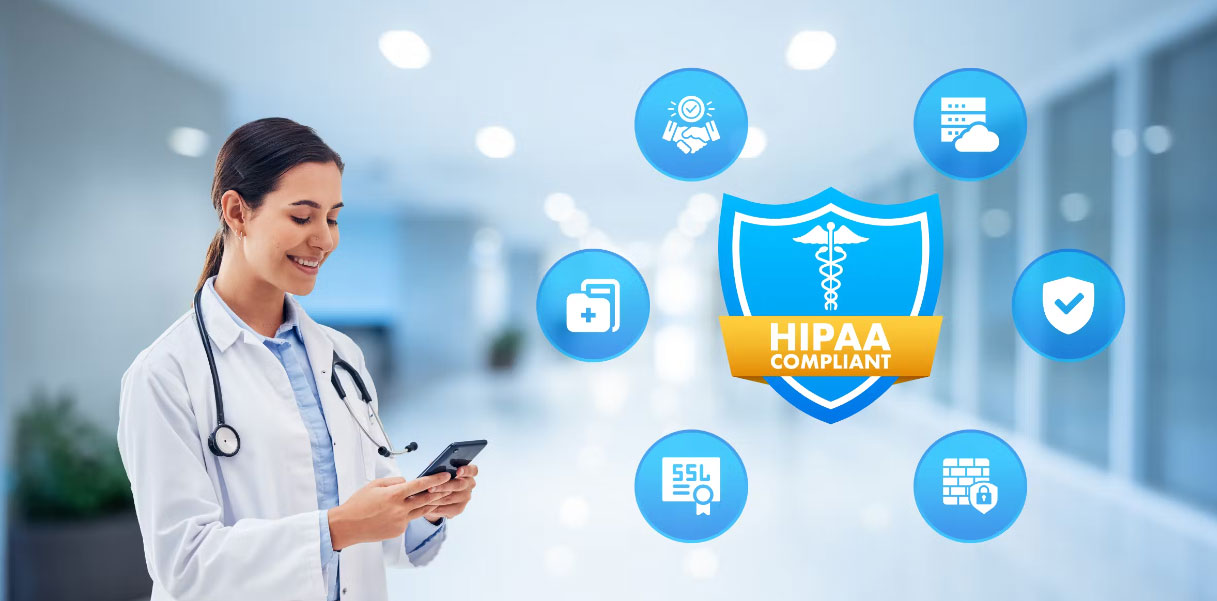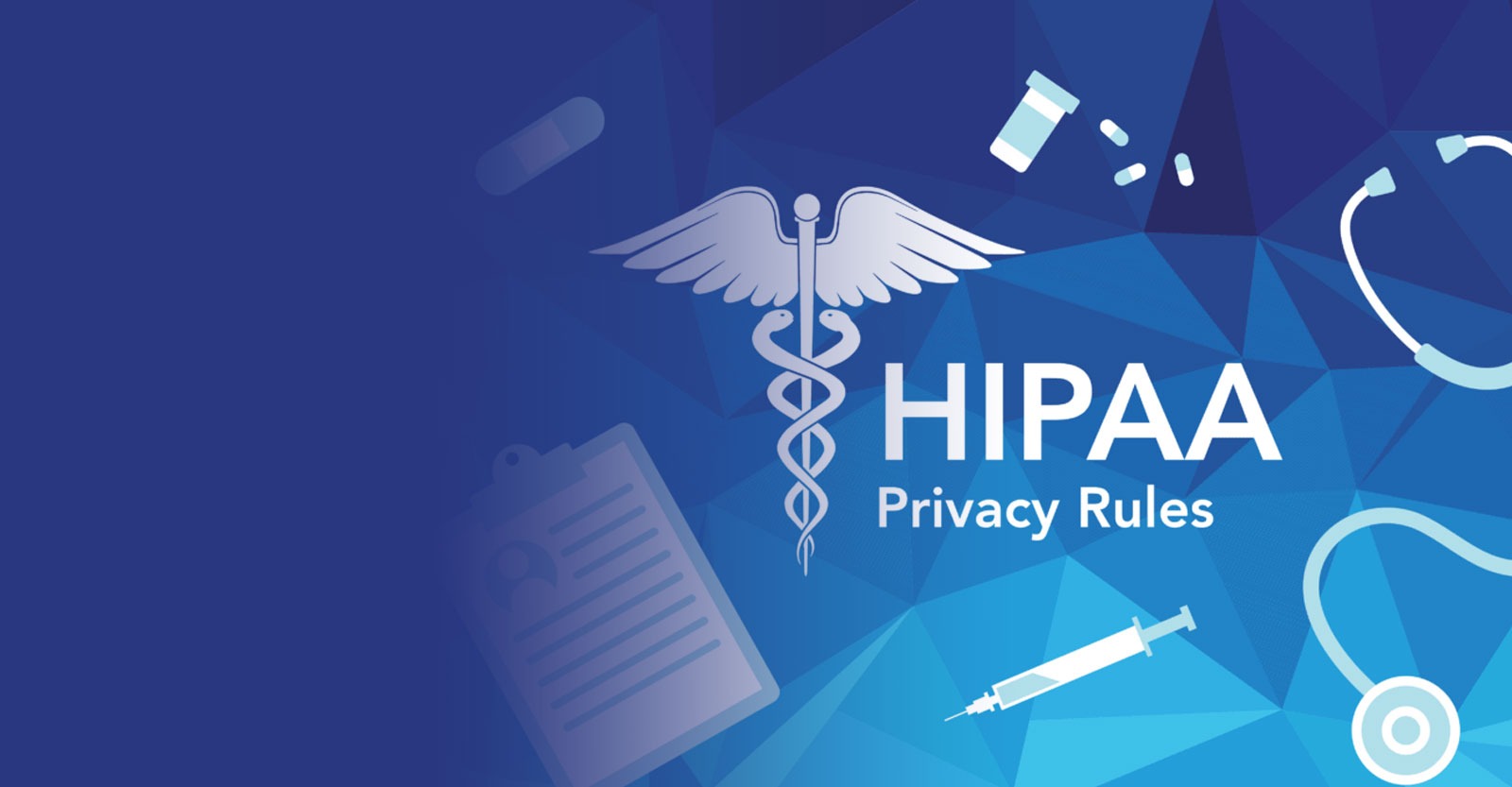In the dynamic realm of healthcare, where the intersection of technology and patient care is more pronounced than ever, the protection of patient data emerges as a critical imperative. As a sentinel against potential breaches, HIPAA compliance becomes the linchpin in this digital healthcare ecosystem.
Introduction

In the intricate tapestry of healthcare regulations, HIPAA, or the Health Insurance Portability and Accountability Act, is a formidable force dedicated to preserving the sanctity of patient information. Let’s unravel the layers of its significance and explore
Why is HIPAA compliance important?
Understanding HIPAA Compliance in Healthcare
Before delving into the depths, it is important to know ‘What is HIPAA Compliance?’
HIPAA compliance extends beyond a mere checklist; it is a comprehensive framework designed to regulate the handling of sensitive patient information across the healthcare continuum. This includes the physical storage of records and the intricate web of electronic data exchange.
- Regulatory Standards for Patient Data Protection
The regulatory standards set by HIPAA are meticulous in their approach. From creating electronic health records (EHRs) to transmitting and storing patient data, the act leaves no stone unturned, ensuring a robust defense against potential vulnerabilities.
- Legal Implications of Non-Compliance
Non-compliance is not trivial; it comes with significant legal consequences. Fines and legal actions can cripple organizations, emphasizing the gravity of adhering to the stringent regulations laid out by HIPAA.
The Significance of Patient Data Security
- Confidentiality and Trust in Healthcare
At the core of healthcare lies a sacred trust between patients and providers. A breach in data confidentiality fractures this trust, potentially leading to a breakdown in the patient-provider relationship. HIPAA compliance emerges as a guardian, preserving the confidentiality fundamental to this trust.
- Risks Associated with Data Breaches
The digital age brings the looming threat of data breaches. Cyberattacks on healthcare systems can compromise sensitive patient data, leading to identity theft, financial fraud, and, more importantly, compromised patient care. Data analytics companies in India with HIPAA compliance acts as a shield against these pervasive threats.
- Impact on Patient Outcomes and Reputation
Beyond the immediate legal consequences, non-compliance can profoundly affect patient outcomes. Moreover, the tarnished reputation resulting from a data breach can deter patients from seeking care, impacting the community’s overall health. This, in-depth, explains what is the importance of HIPAA compliance in healthcare.
Importance of HIPAA Compliance in Healthcare
- Protecting Patient Privacy Rights
HIPAA, at its essence, is a champion of patient rights. Compliance ensures that patients have control over who accesses their health information and for what purpose. It upholds the ethical principle that individuals’ health information is personal and private.
- Ensuring Secure Electronic Health Records (EHRs)
While the digital transformation of healthcare has streamlined processes, it has also introduced vulnerabilities. EHRs, while efficient, can be susceptible to unauthorized access. Healthcare software development company ensure HIPAA compliance mandates with robust security measures, encryption, and access controls to fortify the integrity of electronic health records.
- Minimizing the Risk of Data Breaches
Prevention is critical, and HIPAA compliance provides a roadmap for reducing the risk of data breaches. From conducting regular risk assessments to implementing encryption protocols, compliance measures act as a proactive defense against the ever-evolving landscape of cyber threats.
Regulatory Compliance in Healthcare for Sharing Patient Data
- HIPAA Regulations for Data Sharing
It is vital to understand what is regulatory compliance in healthcare for sharing patient data, in order to keep a check. Healthcare thrives on collaboration, and data sharing is a cornerstone of effective patient care. HIPAA regulations strike a delicate balance between the need for accessibility and the imperative to maintain security. Understanding these regulations is crucial for healthcare providers navigating the complex terrain of data sharing.
- Balancing Data Accessibility and Security
Access to patient information is paramount for timely and effective care. HIPAA compliance ensures that this access is granted securely, with measures in place to prevent unauthorized sharing and protect patient confidentiality. Striking the right balance is the key to fostering collaboration without compromising security.
- Penalties for Non-Compliance
The penalties for non-compliance extend beyond immediate financial repercussions. Fines can incapacitate healthcare organizations, but the long-term impact on reputation and patient trust can be even more debilitating. The penalties serve as punitive measures and a deterrent against lax security practices.
Data Analytics in Healthcare
- Role of Data Analytics in Improving Patient Care
In the contemporary healthcare landscape, the role of data analytics transcends mere statistical analysis. It serves as a transformative force, offering unparalleled insights into patient care. Beyond diagnostics, data analytics allows healthcare providers to predict patient outcomes, personalize treatment plans, and optimize overall care delivery. The integration of analytics in healthcare enhances clinical decision-making and contributes to the broader goal of improving patient outcomes.
- Importance of HIPAA-Compliant Analytics
While the potential benefits of data analytics in healthcare are vast, ethical and legal considerations must be addressed. HIPAA compliance becomes paramount in data analytics to ensure that the utilization of patient data aligns with the highest standards of privacy and security. Analyzing patient information must be a meticulous process that adheres to regulatory guidelines, safeguarding against unauthorized access or data breaches. The intersection of data analytics and HIPAA compliance is not just a necessity but a delicate balance between innovation and ethical responsibility.
- Data Analytics Companies in India and Their Role in Healthcare
The vibrant tech industry in India has positioned the country as a significant player in the global healthcare analytics landscape. Indian data analytics companies contribute expertise in developing cutting-edge solutions that harness the power of data while ensuring HIPAA compliance.
Their role extends beyond providing mere analytics tools; these companies have been actively participating in shaping the future of healthcare by creating solutions that are not only technologically advanced but also ethically sound. The global nature of healthcare data underscores the importance of international standards, and Indian companies are pivotal in ensuring that data analytics align with these standards.
By exploring these aspects of data analytics in healthcare, we gain a nuanced understanding of its transformative power, the ethical considerations surrounding its implementation, and the notable contributions of Indian companies in shaping this evolving landscape. The synergy between data analytics and HIPAA compliance paves the way for innovation and underscores the commitment to safeguarding patient privacy in an increasingly data-driven world.
The Role of Healthcare Software Development Companies
- Ensuring HIPAA Compliance in Software Development
Software is the backbone of modern healthcare practices, facilitating everything from patient management to diagnostics. Software development companies, therefore, play a pivotal role in ensuring that these tools are not just efficient but also HIPAA-compliant, safeguarding patient data from inception to execution.
- Customized Solutions for Secure Data Management
Healthcare is not a one-size-fits-all industry, and neither should its software solutions. Software development companies create customized solutions that cater to the unique needs of healthcare providers, ensuring that data management is efficient and secure.
Healthcare Software Development Companies in India contribute significantly to the global healthcare IT landscape. Their expertise in crafting solutions that meet international standards is a testament to India’s prowess in healthcare technology.
Best Practices for HIPAA Compliance
- Employee Training and Awareness
The human element is often the weakest link in data security. Comprehensive training programs ensure that every healthcare team member, from administrators to frontline staff, understands their role in maintaining HIPAA compliance. This creates a culture of vigilance where everyone is a stakeholder in data protection.
- Regular Risk Assessments and Audits
The cybersecurity landscape is dynamic, with new threats emerging regularly. Regular risk assessments and audits are not just compliance checkboxes but proactive measures to identify and address potential vulnerabilities before they can be exploited. It’s a continuous process of improvement and adaptation.
- Implementing Secure Technology Solutions
Technology evolves, and so do cybersecurity threats. Staying ahead of the curve involves adopting cutting-edge, secure technology solutions. From encryption algorithms to secure communication channels, technology is a dynamic ally in the quest for HIPAA compliance. Integrating technology and compliance is a necessity and an opportunity for innovation.
Case Studies
- Examples of Successful HIPAA Compliance Implementation
Real-world success stories underscore the tangible benefits of HIPAA compliance. From healthcare systems seamlessly sharing data to thwarting cyber threats, these cases serve as beacons for others navigating the complex terrain of healthcare data protection. They also provide valuable insights into best practices that can be adopted by organizations striving for compliance.
- Consequences of Non-Compliance in Real-World Scenarios
Examining instances where healthcare entities fell short underscores the gravity of non-compliance. Beyond financial penalties, the impact on patient trust and institutional credibility is a cautionary tale. It’s a stark reminder that the consequences of lax security practices extend far beyond the immediate aftermath of a breach.
Conclusion
In the symphony of healthcare, where patient care is the melody, HIPAA compliance is a vigilant conductor, ensuring that every note resonates with the essence of security and confidentiality. As we navigate the intricacies of healthcare data protection, we must recognize the symbiotic relationship between technology, compliance, and patient care.
In crafting secure solutions for the healthcare landscape, BuzzyBrains stands as a testament to the commitment of the industry to uphold the highest data protection standards. The journey towards HIPAA compliance is not just a legal mandate; it’s a collective responsibility to safeguard the trust that patients place in the hands of healthcare providers.
In this dynamic ecosystem, where data is the lifeblood of healthcare, let us continue to innovate, collaborate, and uphold the sanctity of healthcare data as guardians of patient information.
Visit BuzzyBrains, one of the leading healthcare software development company, to explore how technology seamlessly integrates with the ethos of HIPAA compliance, ensuring a future where patient data is secure and instrumental in shaping a healthier world. It’s not merely a promotion but an invitation to explore the intersection of technology and healthcare ethics.
